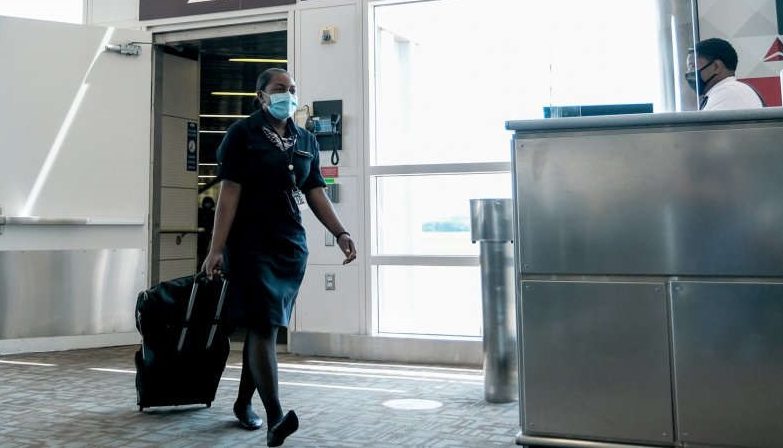Is it still harder to become a Delta Air Lines flight attendant than it is to get into Harvard?
Of all the odd statistics I’ve picked up writing about big airlines and smaller businesses, one of my favorites is the one about Delta Air Lines and its flight attendants.
It’s exactly the kind of thing I write about in my free book, Flying Business Class, which you can download here, and it goes like this:
If you crunch the numbers the right way, you can make an argument that it’s statistically harder to become a Delta Air Lines flight attendant than it is to gain admission to Harvard University.
Take 2017, for example, when according to Delta’s numbers, more than 270,000 people applied for roughly 1,700 open Delta flight attendant jobs, which works out to about a 0.62 percent success rate.
INC. TODAY’S MUST READS: New Research: Status Reports Can Make Teams Less Effective
That year, Harvard had a 5.2 percent acceptance rate. (It’s now down to 3.4 percent at Harvard.)
Last week, just in time for Labor Day, Delta Air Lines announced plans to hire 1,500 new flight attendants, along with an additional 1,500 flight attendants who made it through the hiring process before the pandemic began in early 2020, but who weren’t able to start work due to the crisis.
All of this comes not a moment too soon for the people who are currently employed as Delta Air Lines flight attendants, and it’s safe to say they’ll be very happy about the announcement.
Roughly 4,000 of their fellow flight attendants took early retirement or other separation options during the pandemic, and the strain on those who stayed has gotten more difficult.
Now, Delta isn’t alone in its hiring plans. United Airlines recently announced it’s going to hire more flight attendants after its pandemic pause, as the cabin crew recruitment site Paddle Your Own Kanoo reported, American Airlines is looking to hire 800 flight attendants, while JetBlue wants to hire 2,500 new flight attendants.
On top of that, Southwest Airlines increased its recruiting and also recently announced it’s going to reduce its schedule after its flight attendants wrote that they felt “weary, exhausted, frustrated, and forgotten.”
Still, given the history, it’s the Delta Air Lines announcement that caught people’s attention.
Now, I tend to put an asterisk on the Delta-versus-Harvard acceptance rate comparison, simply because it doesn’t actually cost anything to begin the application process at Delta.
Applying to Harvard at the very least requires an application fee. The top of the funnel at Delta is simply bigger, so the odds of making it to the bottom of the funnel are longer.
INC. TODAY’S MUST READS: How to Stay Innovative During Times of Uncertainty
But I still think it’s both a slick statistic to be able to mention, and a legitimate expression of how desirable these jobs seem to many people.
Or at least — how desirable they once were.
It’s going to be very interesting to see now just how many people apply for these jobs, and whether the allure of flying for a living, along with the perks of nearly unlimited, nearly free travel around the world, will still be enticing in our current world situation.
For that matter, the job itself has become much more demanding across the industry, both because of airlines’ challenges in maintaining the correct ratio of staff to flights, and because of the seemingly infinite new ways passengers have found to behave badly over the last 18 months.
Here’s an indication: The Federal Aviation Administration (FAA) issued more than $1 million in fines to unruly airline passengers so this year, and has started more than four times as many incident investigations as it did in all of 2019.
Some of the details of these passengers’ transgressions are surreal. Here’s the first one listed in the FAA’s report:
$45,000 against a passenger on a May 24, 2021, jetBlue Airways flight from New York, N.Y., to Orlando, Fla., for allegedly throwing objects, including his carry-on luggage, at other passengers; refusing to stay seated; lying on the floor in the aisle, refusing to get up, and then grabbing a flight attendant by the ankles and putting his head up her skirt. The passenger was placed in flexi-cuffs and the flight made an emergency landing in Richmond, Va.
INC. TODAY’S MUST READS: Open-Plan Offices Make a Comeback Because of Lazy Bosses
As a business owner in any industry, I think it will be instructive to watch and learn from how this turns out.
Because while it’s impossible to know ahead of time whether Delta’s low hiring rate will be similar to what it was years ago under current conditions, it’s clear Delta will be facing some of the same challenges you probably face in your business:
If you need a steady stream of new employees, how do you manage the flow of applicants and training?
What do you do when circumstances suddenly change, and the job is perceived differently?
In 2021, what concessions do you need to consider making, if there’s no way your employees can do any of their work remotely?
If you’ve built an air of selectivity around your business and employees, how do you react when you run a risk that the trend might go against you?
How will the simple things you’ve taken for granted in the past change now in your business, as a result of the second and third-order effects of the pandemic?
If you’re a business owner, I assume you’re not interested in becoming a flight attendant. But just in case you know anyone who might be interested, or else if you’d just like to see how Delta runs its process, you can find their application site here.
(Don’t forget the free ebook, Flying Business Class.)
(Editor: Michael)


